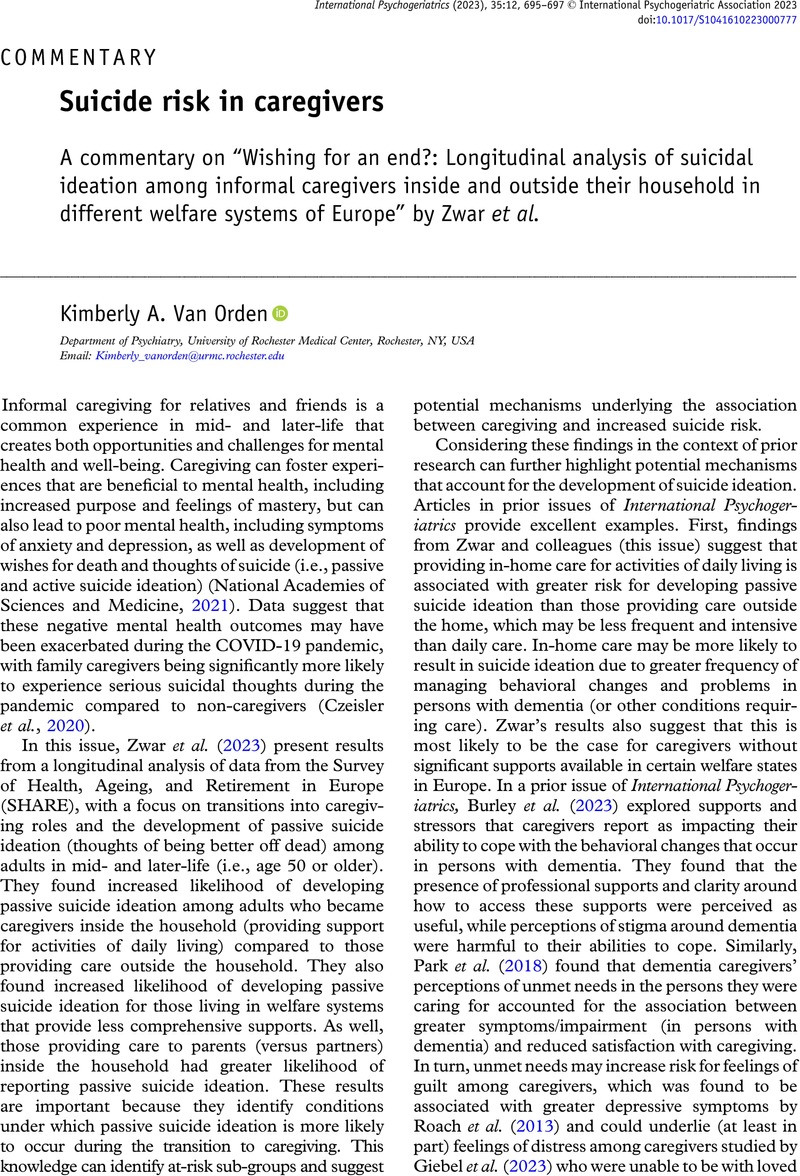Crossref Citations
This article has been cited by the following publications. This list is generated based on data provided by Crossref.
Walters, Caroline
McDonald, Eileen
Sheers, Carli
Hawkins, Kerry
Solich, Hayley
Anderson, JulieAnne
Simic, Nevena
Moore, Danielle
Stevenson, Tony
Lawn, Sharon
Goodyear, Melinda
Maghidman, Marcelo
and
Petrakis, Melissa
2024.
Knowledge Families Hold: Co‐Production and Co‐Research With Mental Health Family Carers in Understanding Experiences During the COVID‐19 Pandemic.
Health Expectations,
Vol. 27,
Issue. 6,



